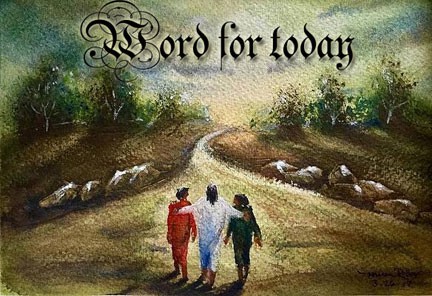Watch
Events
Articles
Market
More
WORD FOR TODAY “what makes you happy”: Jer 11:15 What right does my beloved have to be in my house, when she has behaved so shamelessly with so many? Offerings of consecrated meat can no longer help, because it is when you are doing evil that you are happy."
VERSE FOR TODAY: Psa 41:1 [For the leader. A psalm of David:] How blessed are those who care for the poor! When calamity comes, Adonai will save them.
Positive frequencies spoken out loud hourly.
www.BGMCTV.org
Meaning of Numbers: The Number 41
The number 41 is comprised of two digits: 4 and 1. In biblical numerology, the number 4 is associated with creation, stability, and the earthly realm. It can also represent the four corners of the earth or the four elements (earth, air, fire, and water). The number 1, on the other hand, symbolizes unity, leadership, and God’s power.
When these two digits are combined, the result is a number that represents the unity and stability of God’s creation. It symbolizes the power of God working in the earthly realm to bring about His divine plan and purpose.
The Hebrew words beyth lechem, Strong's Concordance #h1035, are recorded 41 times in 39 Hebrew Old Testament verses. It is found the most in the book of Judges (9 times) followed by the books of Ruth and 1Chronicles (7 times each). The words, which mean "house of bread," are translated as "Bethlehem" in the King James.
The forty-first Psalm, written by King David, praises those who help the poor and the needy. Those who do so are promised that the Lord will protect and heal them.
Blessed is he who considers the poor; the Lord will deliver him in time of trouble. The Lord will watch over him and keep him alive; and he shall be blessed upon the earth; and You will not deliver him over to the will of his enemies.
The Lord will strengthen him upon his sickbed; You will sustain him in all his sickness . . . Blessed is the Lord, the God of Israel, from everlasting to everlasting. Amen and Amen! (Psalm 41:1 - 3, 13).
The Hebrew word tsela (Strong's #h6763) occurs 41 times in 32 verses in the Old Testament's original language. It is used the most in Exodus (19 times) followed by Ezekiel (11). The word is generally used to refer to something that is on the side (location wise) of something else. It can refer to a human rib, a side of a hill, a side chamber, the leaves of a door and so on. Its first two uses famously reference how God created a woman out of a man.



